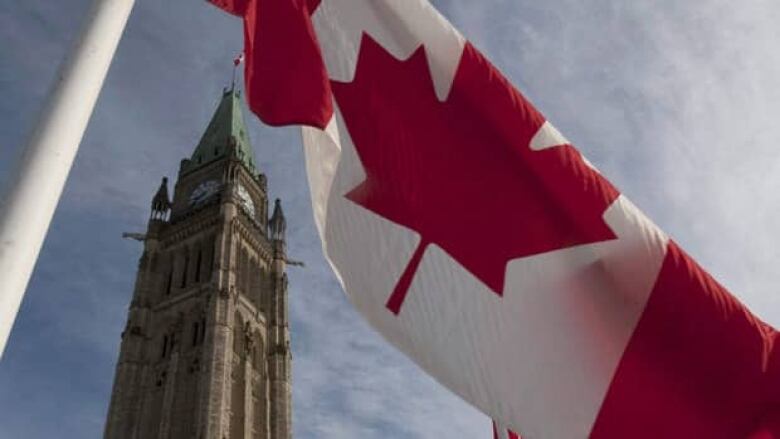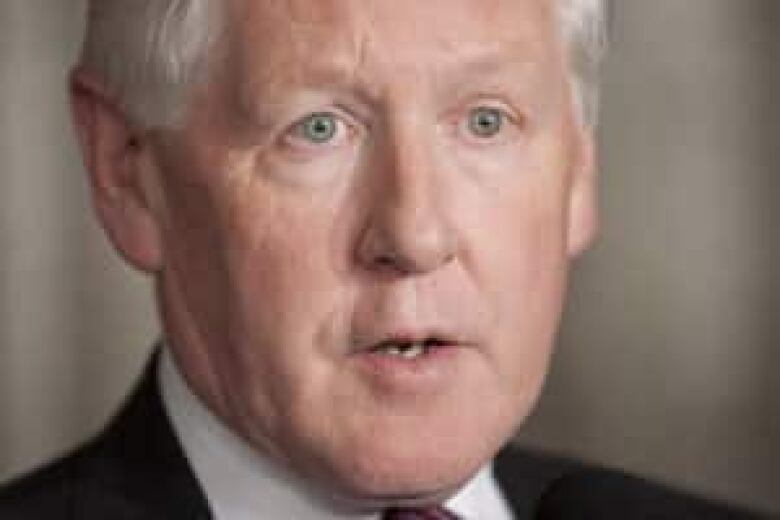How the abortion debate has reared its head in Parliament

Despite Stephen Harper's determination not to reopen the abortion debate, the issue is back in the parliamentary spotlight as MPs consider whether to create a committee to look at the legal definition of when human life begins.
Conservative MP Stephen Woodworth, who represents Kitchener, Ont., introduced the private member's motion calling for the committee. Woodworth says current Canadian law defines the beginning of human life as the moment when a child has fully emerged from the mother's birth canal, a dated concept that needs to be re-examined in the context of modern medical knowledge.
The motion will get one hour of debate on April 26. Then it drops to the bottom on the order of precedence, and gets another hour of debate when it returns to the top of the list in a few weeks' time. The House is expected to vote on the motion either in June or September after the summer recess.
Here's a look at the official position of Canada's federal parties, and how the controversial debate has reared its head in recent years.
Conservative Party of Canada

Prime Minister Stephen Harper has repeatedly said that he has no interest in addressing the issue head-on.
"As long as I am prime minister we are not opening the abortion debate," Mr. Harper said in April 2011. "The government will not bring forward any such legislation, and any such legislation that is brought forward will be defeated as long as I am prime minister."
New Democratic Party of Canada

NDP leader Tom Mulcair has stated that his caucus is unanimous in its opposition to the private member’s motion calling on Parliament to look at whether a fetus is a human being, but he plans to force his MPs to vote along party lines.
"We’re resolutely in favour of women’s right to choose," Mulcair declared
Liberal Party of Canada

Interim Liberal Leader Bob Rae has stressed that the abortion issue is matter of individual conscience. Rae expressed his personal opposition to reopening the debate, but said Liberal MPs will be allowed to vote "their conscience" rather than force them to toe the party line.
"Our position on reproductive choice, my position on reproductive choice, is very, very clear. It has been for decades. The position is it’s a person's right to choose."Events in the debate
Controversy over planned parenthood funding
Saskatoon-Humboldt MP Brad Trost tells Saskatchewan's ProLife Association in April 2011 that the federal government has decided to cut funding to the International Planned Parenthood Federation, a decision he says was influenced by anti-abortion supporters.
"I cannot tell you specifically how we used it, but those petitions were very, very useful and they were part of what we used to defund Planned Parenthood because it has been an absolute disgrace that that organization and several others like it have been receiving one penny of Canadian taxpayers' dollars," Trost said.
Maurice Vellacott, a Conservative MP from Saskatoon-Wanuskewin, also calls for Planned Parenthood to be defunded.
Vellacott says the controversy over the funding "exposed the lies and destructiveness of IPPF’s agenda."
"It exposes what this abortion giant is surreptitiously trying to achieve worldwide."
International Cooperation Minister Bev Oda approves funding.
'Coerced' abortion law
Conservative Winnipeg MP Rod Bruinooge proposes "Roxanne's Law" in 2010, a bill that would penalize anyone who "coerced" a woman into ending her pregnancy against her will.
"It's not just as simple as feeling pressured to get an abortion; there is a lot of discussion of sex-selection abortion these days, as well," Bruinooge told the Winnipeg Free Press. "It's part of the overall topic of intimidation that goes towards a pregnant woman."
Bruinooge insisted the bill wasn’t meant to force Parliament to wade into the debate banned by Harper, stating that nothing in his bill made it illegal to abort a fetus.
But the Liberals and New Democrats saw it as a backdoor entry into the touchy topic.
"How is an abortion bill not an abortion bill?" said then-Liberal MP Anita Neville. "This certainly introduces discussion into the House of Commons and it is a rather sneaky way of doing it."
Then-NDP leader Jack Layton echoed her concerns. "You have got to wonder what is really going on here."
The bill was defeated in December of 2010, with 178 votes against and 97 in favour. Harper and many Conservatives voted against it and 10 Liberals supported it. The NDP was unanimously against it.
Maternal health
International Co-operation Minister Bev Oda discloses for the first time in April 2011 that Canada will not fund abortions in its G8 child and maternal health-care initiative for developing countries.
Keith Martin, then-Liberal MP who had defected from the Tories years earlier, expressed outrage. "People here are perplexed and wondering why Canada is rolling back the clock and depriving women in developing countries from having the same rights to basic health care and access to abortion as women in Canada," he said.
Then-NDP leader Jack Layton accused the Tories of putting Canada on side with former U.S. president George Bush, who reduced support for abortion-related aid.
"It's picking up the banner that George Bush used to carry, and I think that that's not something that would be supported by the majority of Canadians, that's for sure," Layton said.
On June 25, 2010 Canada pledged $1.1 billion to a global initiative on maternal and child health for developing countries – a disproportionately high amount compared to other G8 countries. Canada did not allow for its share to be used in the funding of abortions.